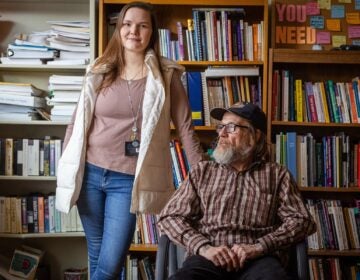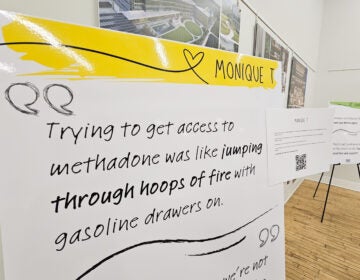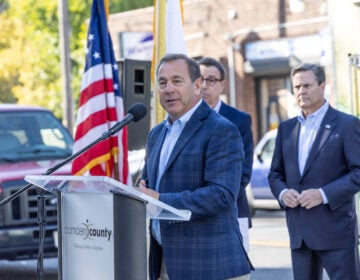N.J. patients with opioid addiction now qualify for medical marijuana
The news came as a welcome change to officials and advocates trying to expand the state’s medical cannabis program and find innovative ways to battle the opioid crisis.

(Brennan Linsley, AP Photo)
New Jersey patients can now cite their opioid addiction as a qualifying condition to get medical marijuana, state officials announced Wednesday.
The news came as a welcome change to officials and advocates trying to expand the state’s medical cannabis program and find innovative ways to battle an unrelenting opioid crisis.
At a press conference at Cooper University Hospital in Camden, Gov. Phil Murphy said marijuana can be used “both as an alternative to [prescription] opioids … but also as a weapon for folks who are trying to struggle their way out of an addiction.”
Previously patients struggling with addiction could get medical marijuana only if they had developed their addiction by taking prescription opioids to treat chronic pain.
“First of all, if you have chronic pain, it helps treat that pain,” said Health Commissioner Shereef Elnahal. “Second of all, it also helps treat a lot of mood disorder issues that someone may have associated with addiction.”
According to officials, more than 3,000 people died of overdoses in New Jersey last year.
But Elnahal emphasized that the state will require medical marijuana patients treating an opioid addiction to also use medication-assisted treatment “as part of a broad, government-wide push for the most effective evidence-based treatment that we know of.”
The addition of opioid addiction to the list of qualifying conditions in the state’s medical marijuana program takes effect immediately.
The state is also removing a health insurance hurdle that officials said makes it harder for patients with an opioid addiction to get treatment.
Murphy announced that Medicaid would scrap the need for patients to obtain prior authorization before accessing medication-assisted treatment.
“It’s essentially a key insurance barrier that has been gummed up inside of our Medicaid reality,” Murphy said. “So we’re removing that specifically for medication-assisted treatment.”
Murphy said he hopes the change will allow more patients to be treated.
Earlier in the day, first lady Tammy Murphy announced a statewide initiative called Nurture NJ to reduce the number of maternal and infant deaths during childbirth.
The effort will inform expectant mothers on state services available to them and educate doctors on common complications associated with childbirth and the protocols to treat them.
According to officials, New Jersey ranks 45th among state in its maternal mortality rate.
WHYY is your source for fact-based, in-depth journalism and information. As a nonprofit organization, we rely on financial support from readers like you. Please give today.




